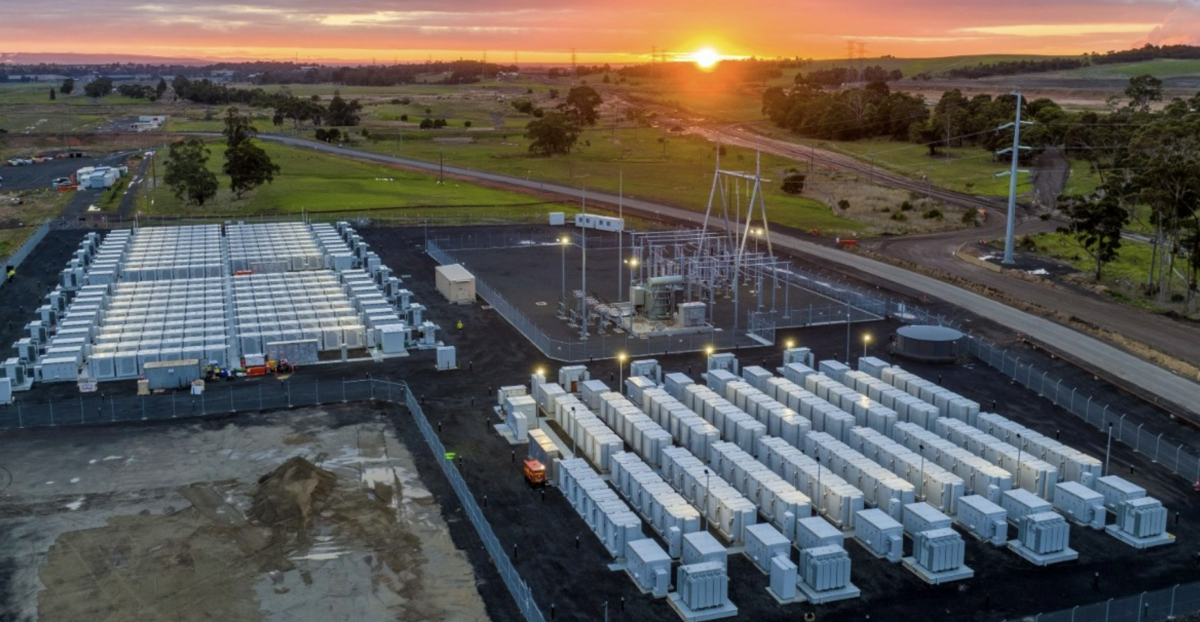Australia is experiencing one of the most rapid shifts toward clean energy in the world and global energy storage provider Fluence aims to support the next frontier of the battery-based energy storage scale-up the country will need.
Fluence President and Chief Executive Officer Julian Nebreda said energy storage technology providers and developers in Australia have navigated significant challenges, including increasingly complex grid connection requirements, to kick-start a new industry.
Having played a key role in that development, Fluence is now looking beyond hardware, offering renewable energy and storage asset owners optimisation software that maximises asset performance and servicing.
“We are continuously scouting for innovations that can create value for our existing customers and open up new segments for energy storage,” he said. “Customers are exploring new revenue streams like network support contracts, creative offtake structures, and cycling strategies, as well as performance guarantees to support these.”
Nebreda said tools like the Mosaic automated bidding software and the cloud-based Nispera asset performance management software platform are helping asset owners improve bidding strategies and operations.
“These solutions drive value and allow owners and operators to maximise revenue,” he said.
Fluence has an extensive track record and robust pipeline in Australia. The company deployed its first asset here, a 30 MW/30 MWh system near Ballarat, Victoria, in 2018. It now has 1,030 MW/1,830 MWh of projects operating or under construction in Australia. The most recent is the 300 MW/650 MWh Mortlake Power Station Battery being developed by Origin Energy in Victoria.
Nebreda said Australia remains one of the key markets for Fluence globally, noting that while it is “challenging and fast-moving,” the market fundamentals for battery-based energy storage are increasingly strong.
Popular content
“Australia is experiencing one of the most rapid shifts towards clean energy worldwide, especially due to the need to replace its aging fleet of coal-fired power plants and its privileged abundant renewable resources,” he said. “With one of the longest and stringiest grids, addressing major stability issues is crucial. Large-scale energy storage deployment helps make this energy transition smoother, more cost-efficient, and reliable.”
Utility-scale energy storage has emerged as a linchpin of a modern, sustainable, and resilient power grid and Nebreda said it will be “absolutely critical” following the agreement reached at the recent COP28 meeting to triple global renewable energy capacity by 2030.
“The only proven and economic way to incorporate that level of intermittent energy is to utilise utility-scale energy storage systems to enable this large percentage of renewable energy to be integrated onto the power grid,” he said.
Lithium-ion technology currently dominates the utility-scale storage industry and Nebreda expects that to continue but said the company remains open to new technologies and developments.
“These innovations can take many forms, such as extensions to existing lithium-ion batteries, the connected ‘digital battery,’ and even novel non-lithium-based battery chemistries, such as sodium-ion,” he said.
Nebreda said battery technology will continue to improve, including in performance, costs, ease of deployment, and potentially new architectures but he expects the main advancements will come via improvements in lithium-ion based systems.
“This will allow for greater flexibility in how the batteries are operated to maximise the benefit for the grid, such as degradation curves based on the actual operation of the battery system,” he said, noting that the technology is currently the most cost-effective solution that provides the most value to its customers.
This content is protected by copyright and may not be reused. If you want to cooperate with us and would like to reuse some of our content, please contact: editors@pv-magazine.com.



1 comment
By submitting this form you agree to pv magazine using your data for the purposes of publishing your comment.
Your personal data will only be disclosed or otherwise transmitted to third parties for the purposes of spam filtering or if this is necessary for technical maintenance of the website. Any other transfer to third parties will not take place unless this is justified on the basis of applicable data protection regulations or if pv magazine is legally obliged to do so.
You may revoke this consent at any time with effect for the future, in which case your personal data will be deleted immediately. Otherwise, your data will be deleted if pv magazine has processed your request or the purpose of data storage is fulfilled.
Further information on data privacy can be found in our Data Protection Policy.